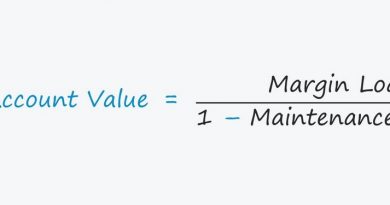Viral Website Meaning Types Pros and Cons

Contents
- 1 Viral Website: Meaning, Types, Pros and Cons
- 1.1 What Is a Viral Website?
- 1.2 Understanding Viral Websites
- 1.3 The Concept of "Going Viral"
- 1.4 Types of Viral Popularity
- 1.5 How to Build a Viral Website
- 1.6 Advantages and Disadvantages of Viral Websites
- 1.7 How Does a Website Go Viral?
- 1.8 How Many Views Do You Need to Go Viral?
- 1.9 How Much Money Does Viral Content Make?
- 1.10 The Bottom Line
Viral Website: Meaning, Types, Pros and Cons
What Is a Viral Website?
A viral website receives an abnormally large amount of web traffic within a limited span of time due to word of mouth, link sharing, and social media. They become popular through being shared on social media or forwarded to friends and family, who then forward it to their own network, causing traffic to grow.
Key Takeaways
- A viral website receives an abnormally large amount of web traffic due to word of mouth, link sharing, and social media.
- Viral websites are highly desired for popularity, fame, and revenue generation through advertising or product sales.
- Websites such as BuzzFeed, Upworthy, Reddit, and even X’s (formerly Twitter’s) trending posts often host viral content.
- Viral websites require the capability to handle excess short-term traffic.
- To go viral, companies must create easily sharable and likeable content, engage with their audience, and try different approaches across different social media platforms.
Understanding Viral Websites
Viral websites are highly desired for popularity, fame, and revenue generation. When people share the website’s content through social media or other online channels, it rapidly increases traffic and visibility.
The content on a viral website is usually unique, interesting, and shareable. It taps into current trends or popular topics, including current events or celebrities. Viral websites can take many forms, such as videos, images, articles, or memes, and they may be created by individuals, companies, or organizations.
The Concept of "Going Viral"
Viral websites have been around since the modern version of the Internet emerged in the 1990s. They have some things in common, yet it’s hard to predict what will go viral. Virality also has no predetermined definition based on the number of views. The sites often feature user rankings or voting tools to bring the most popular content to the top.
Viral sites are hosted on scalable platforms like WordPress and often use irresistible headlines known as "clickbait". They can include videos, which are most likely to go viral the fastest. Many viral videos were not created with the intent of going viral and often feature embarrassing moments.
Types of Viral Popularity
A website can achieve different types of viral popularity. Each type is formed based on different strategic approaches and the types of content and people leveraged to raise popularity. Below are some common types of viral popularity.
Organic Virality
Organic virality occurs when website content is engaging, unique, and shareable. It spreads naturally through word of mouth, social media, or other online channels.
Paid Virality
Paid virality is when a website’s content is promoted through paid channels like social media advertising or influencer marketing.
Consider the implications of customers knowing you are paying to go viral. It may alienate customers and sacrifice resources from improving goods.
Influencer Virality
Influencer virality occurs when an influential person or organization shares content on their platform.
News Virality
News virality occurs when a website’s content is picked up by news outlets or media organizations, resulting in widespread coverage and exposure.
Trend Virality
Trend virality occurs when website content taps into a current trend or popular topic.
How to Build a Viral Website
There is no surefire way to make a website go viral. It requires strategic planning, quality content creation, targeted promotion, and a bit of luck. Here are some tips:
- Create unique and shareable content.
- Leverage social media to promote the website.
- Partner with influencers.
- Optimize the website for search engines.
- Offer incentives for sharing.
- Engage with the audience.
- Use different formats across different platforms.
Sometimes websites become viral without any effort from a company.
Advantages and Disadvantages of Viral Websites
Pros of Viral Websites
Viral websites can reach a large audience quickly, increase brand awareness, and be a cost-effective marketing strategy. They can also improve a site’s SEO and lead to higher conversion rates.
Cons of Viral Websites
Viral websites can generate unpredictable traffic and technical difficulties. They may receive negative feedback or criticism and can lose control over content sharing. Virality may not be sustained and quality content may be compromised.
How Does a Website Go Viral?
A website can go viral through strategic planning, quality content creation, and targeted promotion. Likeable and shareable content engages a wide audience.
How Many Views Do You Need to Go Viral?
There is no universally accepted calculation for how many views are needed to go viral. Views are not the sole determinant; it’s about popularity and widespread distribution in a short period of time.
How Much Money Does Viral Content Make?
For companies, the value in viral content is the exposure and opportunity to engage with more customers. Short-term financial prosperity can occur, but leveraging resources, customer data, and connections is essential for long-term financial opportunity.
The Bottom Line
A viral website becomes popular quickly through word of mouth and social media. While it creates opportunities, there are downsides to consider in terms of infrastructure, branding, marketing, and publicity.



